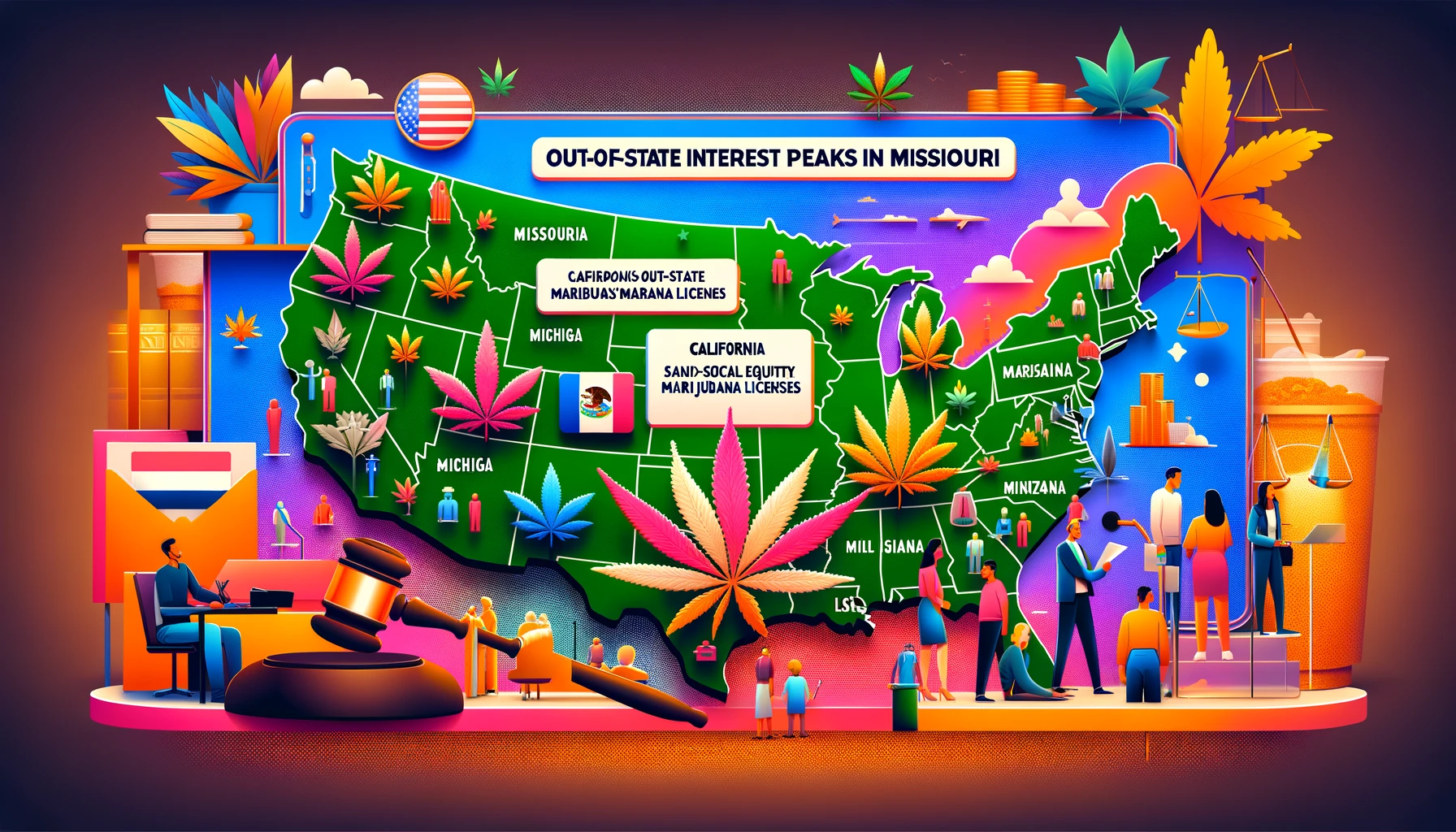Introduction: A Surprising Trend in Cannabis Licensing
In October, a surprising trend emerged in Missouri’s cannabis industry. More than 40% of applicants for the state’s social-equity marijuana licenses were from outside Missouri. This statistic, from the Division of Cannabis Regulation’s annual report, signals a significant shift in the landscape of cannabis licensing.
Out-of-State Dominance
A closer look reveals that half of these out-of-state owners hail from California, Michigan, Louisiana, and Arizona. These figures come from the microbusiness license applications, part of a broader initiative to boost industry opportunities in disadvantaged communities.
Microbusiness License Program: An Overview
The microbusiness license program, stemming from a constitutional amendment legalizing recreational marijuana, aimed to democratize industry access. With 1,625 applications for just 48 licenses, competition was fierce. The program’s design was to encourage local entrepreneurship, but the influx of out-of-state interest raises questions about its reach and effectiveness.
Revocation and Compliance Challenges
The Division of Cannabis Regulation is now scrutinizing the legitimacy of some licensees. Eleven of the 48 licenses issued are under threat of revocation due to non-compliance with eligibility requirements. This strict oversight demonstrates the division’s commitment to integrity and fairness in the licensing process.
Case Studies: Canna Zoned and Cannabis Business Advisors
Canna Zoned, a Michigan-based company, secured two dispensary licenses now deemed ineligible. Their strategy, alongside Cannabis Business Advisors from Arizona, involved flooding the lottery with applications. This tactic, though initially successful, has since backfired, highlighting the need for stringent regulatory compliance.
Legal and Ethical Implications
The situation brings to light several legal and ethical considerations. The use of ‘flooding strategy’ by companies like Canna Zoned and Cannabis Business Advisors raises questions about the fairness and intent of the lottery system. It also underscores the importance of transparent and equitable licensing processes.
Learning from the First Round
Abigail Vivas, Chief Equity Officer, acknowledges the need for improvement. The division plans to introduce educational sessions and possibly a grant-funding program to support applicants. These initiatives aim to prevent predatory practices and foster a more equitable and accessible industry.
Conclusion: Building a Fairer Future
Missouri’s experience with out-of-state applicants for social-equity marijuana licenses offers valuable lessons. As the state prepares for its second round of applications, there’s a clear mandate for more robust support systems and stricter adherence to the program’s intended goals. A fair, transparent, and locally-focused cannabis industry remains the ultimate aim.








